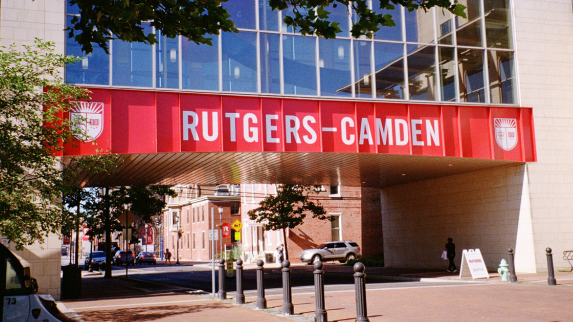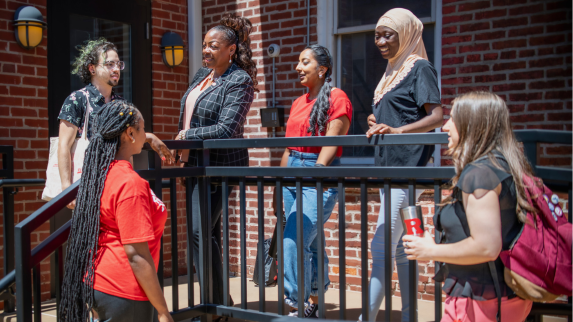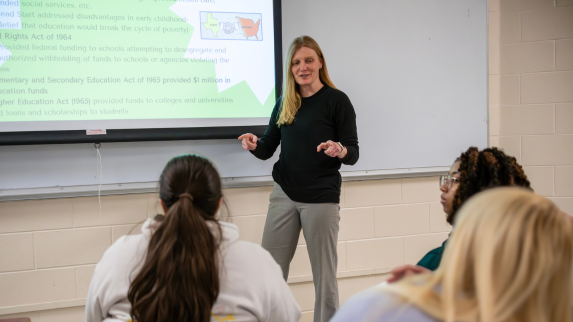Unlocking the Secrets of a 16th-Century Masterpiece
Beneath the visible brushstrokes of a 16th-century painting lies a story waiting to be told. Michelle Carlin, Assistant Professor in the Department of Chemistry at Rutgers-Camden and faculty in the Chemistry and Molecular Technology MS program, teamed up with co-author Nicola Grimaldi to reveal an extraordinary hidden nativity scene. Their research, published in Forensic Science International: Reports as “From Death to the Virgin Birth: Multi-Analytical Investigation of a Suspected 16th-Century Painting,” unearths centuries-old secrets through the lens of science and art.
By applying cutting-edge techniques like X-radiography and multi-spectral photography, the researchers uncovered a depiction of the Virgin Birth hidden beneath the painting of St. John the Baptist at the Bowes Museum in Northern England. This previously unseen composition features the baby Jesus in a straw manger, offering a glimpse into the fascinating practices of Renaissance artists and their reuse of materials.
This interdisciplinary study exemplifies the innovative spirit of the Chemistry and Molecular Technology MS program, where science and humanities intersect to illuminate the past. Read the full story behind this remarkable discovery: Full Article Link.

Related to this Story:
Investigating the Truth: The Forensic Science Program
The Master of Science in Forensic Science program at Rutgers University–Camden offers a comprehensive curriculum designed to prepare students for careers as forensic science practitioners or for further graduate and professional studies. Emphasizing a research-focused approach, the program provides specialized courses and laboratory experiences in forensic chemistry, toxicology, and DNA profiling. Students gain hands-on experience with techniques commonly used in forensic laboratories, ensuring they are well-versed in current technologies and methodologies. Additionally, the program encourages participation in conferences and field experiences, facilitating valuable networking opportunities within the forensic science community.
Charting New Frontiers in Chemistry and Molecular Technology
The Master of Science in Chemistry & Molecular Technology at Rutgers University–Camden emphasizes hands-on laboratory experience and modern chemical research. Students engage with state-of-the-art instrumentation, developing skills in communication, critical thinking, and problem-solving essential for careers in chemistry. The program offers two tracks: the Experimental Track, which includes a thesis component for those aiming to advance in scientific professions, and the Professional Track, a non-thesis option suitable for mid-career professionals or individuals seeking part-time study. Graduates are well-prepared for roles in the chemical and pharmaceutical industries, teaching positions, or further studies in Ph.D. programs across various scientific disciplines.
Spotlights & Stories

Want more stories like this? Spotlights and Stories highlights alumni, faculty, staff, and student experiences through stories, video, and voice. Learn more
Explore Graduate School Programs

Rutgers Graduate School-Camden offers 20+ graduate certificates, master’s, and doctoral programs across various disciplines, including biology, data science, creative writing, and psychology. We take pride in our academic diversity. Learn more
Former Students, Get Involved

Stay connected with Rutgers-Camden! Engage with former students, attend events, and support current students. Your involvement strengthens our community and helps shape future success. Learn more
